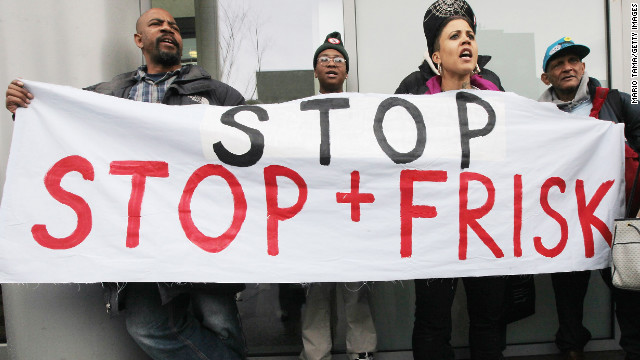Note: Stop and Frisk consistently leads to racist law enforcement practices. The ACLU threatened a lawsuit against the Chicago Police and in order to avoid a lawsuit the Chicago Police agreed to five reforms including:
- The city and CPD will comply with the U.S. and Illinois Constitutions and the Illinois Civil Rights Act. Stops must comply with Fourth Amendment protections from unreasonable searches and seizures. To comply with the ICRA, the stop-and-frisk policy cannot “have a disparate impact on the basis of race.”
- Independent review by a former federal judge. Former federal Magistrate Judge Arlander Keys will independently review the CPD’s stop-and-frisk policy until he determines it complies with both Constitutions and the ICRA.
- Improved training and supervision of CPD officers. CPD will provide officer training aimed at ensuring that stops are lawful, and will perform more comprehensive and regular audits and reviews of stops.
- Data collection regarding stops. In the past, CPD did not have a publicly available database of stops and officers did not keep records of frisks.
- Increased transparency of data. CPD will turn over stop-and-frisk data to Keys, who will also review CPD’s training procedures. Sheley called Keys’ oversight “a key component” of the agreement.
Chicago Police Agree To Review Of Probably Racist, Possibly Useless Stop And Frisk Policy
The American Civil Liberties Union of Illinois and the Chicago Police Department have struck an agreement to have an independent monitor evaluate the controversial #8220;stop and frisk” policy.
The agreement, announced Friday, appoints independent consultant Arlander Keys, a former U.S. magistrate, to issue twice-yearly public reports on “stop and frisk” and suggest policy changes to the Chicago Police Department. In addition, Chicago police will now be required to collect data on and track information on all street stops and to note when pat-downs (“frisks”) are employed, and why. Previously, the police were only required to collect data on street stops but were not required to report if they frisked the person. Additionally, if arrests were made, officers weren’t required to record that data.
The new agreement, which takes effect immediately, is in response to a searing March 2015 ACLU of Illinois report (you can read it in its entirety here) that found that, although only 32 percent of Chicago’s population is black, black Chicagoans made up 72 percent of all stop and frisk encounters. The report also found that police officers used unlawful or arbitrary reasons for stopping citizens.
The report also found that stops were so common in certain communities as to be banal. in just four months in summer 2014, the Chicago police recorded a whopping 250,000 stops that did not result in arrest. In fact, even at the height of New York City’s stop and frisk controversy in 2013,which a federal judge ruled unconstitutional, Chicago is still stopping more than four times the number of citizens.
In exchange for the Chicago Police implementing accountability measures on its controversial “stop and frisk” policy, which includes better training for officers, the ACLU of Illinois has agreed not to sue the Chicago Police Department over the findings of the first report, due to be released next year.
Keys will have access to data on officer name, citizen’s race and gender, whether a frisk was conducted, and whether contraband was found in order to issue his reports.
Both ACLU leadership and Chicago Police superintendent Garry McCarthy have framed the agreement as a positive and collaborative step toward transparency, fairness, and respect.
“What we have done here is move past the litigation process and advanced directly to a collaborative process, to insure that stops on Chicago streets meet constitutional and legal standards,” said ACLU Legal Director Harvey Grossman in a statement Friday.
Still, the Chicago Police Department isn’t clear from litigation. It will have to contend with an April 2015 federal suit filed by six African American men alleging that their constitutional rights were violated due to stop and frisk.
For an informative overview about how stop and frisk works in Chicago, check out this great piece done by the Reader in 2013.

